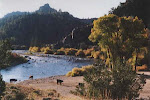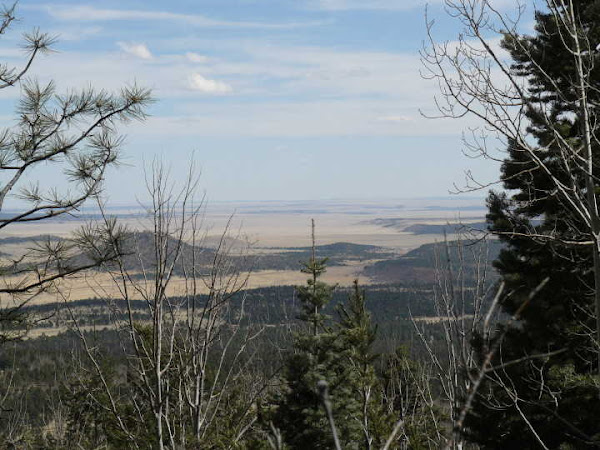Monday, June 15, 2009
"U.S. gas drilling boom stirs water worries"--Reuters
Excerpt: "They have lied to us so much," Grimm told Reuters. He said the company has exceeded the promised number of workers on its drill sites, and flared, or burned, excess gas when it said it wouldn't.
"This was almost a pristine township. They have taken the innocence off it," he said.
Grimm said he has no evidence that drilling is contaminating groundwater, but is aware of concerns that the "fracking" fluid may escape -- either above or below ground -- and that the chemicals in it have the potential to cause cancer, damage human immune and reproductive systems, and trigger other illnesses.
U.S. gas drilling boom stirs water worries
Tue Feb 24, 2009 8:18pm EST
By Jon Hurdle
HICKORY, Penn. (Reuters) - On a snowy hillside in rural southwest Pennsylvania, Larry Grimm drives his truck up a steep gravel track to a hilltop reservoir surrounded by orange plastic fencing and "keep out" signs.
The pond supplies water pumped from a local creek to the natural gas wells that are springing up throughout Mount Pleasant Township, where Grimm is the municipal supervisor.
Range Resources Corp, the Texas company that has drilled 68 wells in the township, needs millions of gallons of water for "hydrofracking," a process that forces a chemical-laden solution deep into the rock, allowing natural gas to be released.
The technique is being repeated at hundreds of other sites in Pennsylvania and parts of surrounding states as energy companies scramble to exploit the Marcellus Shale, one of America's biggest natural gas formations, which some geologists believe contains enough recoverable gas to meet total U.S. needs for a decade or more.
At a time when America is stepping up efforts to reduce its dependence on foreign energy, the Marcellus appears to offer an abundant alternative close to America's biggest natural gas market, the northeast.
But Grimm and others in Hickory say they have already paid a high price for the development of their quiet community from the noise of drills and compressors, heavy truck traffic damaging local roads, and air pollution from flaring or escaping gas.
"This was almost a pristine township. They have taken the innocence off it," he said.
Grimm said he has no evidence that drilling is contaminating groundwater, but is aware of concerns that the "fracking" fluid may escape -- either above or below ground -- and that the chemicals in it have the potential to cause cancer, damage human immune and reproductive systems, and trigger other illnesses.
U.S. gas drilling boom stirs water worries
Tue Feb 24, 2009 8:18pm EST
By Jon Hurdle
HICKORY, Penn. (Reuters) - On a snowy hillside in rural southwest Pennsylvania, Larry Grimm drives his truck up a steep gravel track to a hilltop reservoir surrounded by orange plastic fencing and "keep out" signs.
The pond supplies water pumped from a local creek to the natural gas wells that are springing up throughout Mount Pleasant Township, where Grimm is the municipal supervisor.
Range Resources Corp, the Texas company that has drilled 68 wells in the township, needs millions of gallons of water for "hydrofracking," a process that forces a chemical-laden solution deep into the rock, allowing natural gas to be released.
The technique is being repeated at hundreds of other sites in Pennsylvania and parts of surrounding states as energy companies scramble to exploit the Marcellus Shale, one of America's biggest natural gas formations, which some geologists believe contains enough recoverable gas to meet total U.S. needs for a decade or more.
At a time when America is stepping up efforts to reduce its dependence on foreign energy, the Marcellus appears to offer an abundant alternative close to America's biggest natural gas market, the northeast.
But Grimm and others in Hickory say they have already paid a high price for the development of their quiet community from the noise of drills and compressors, heavy truck traffic damaging local roads, and air pollution from flaring or escaping gas.










